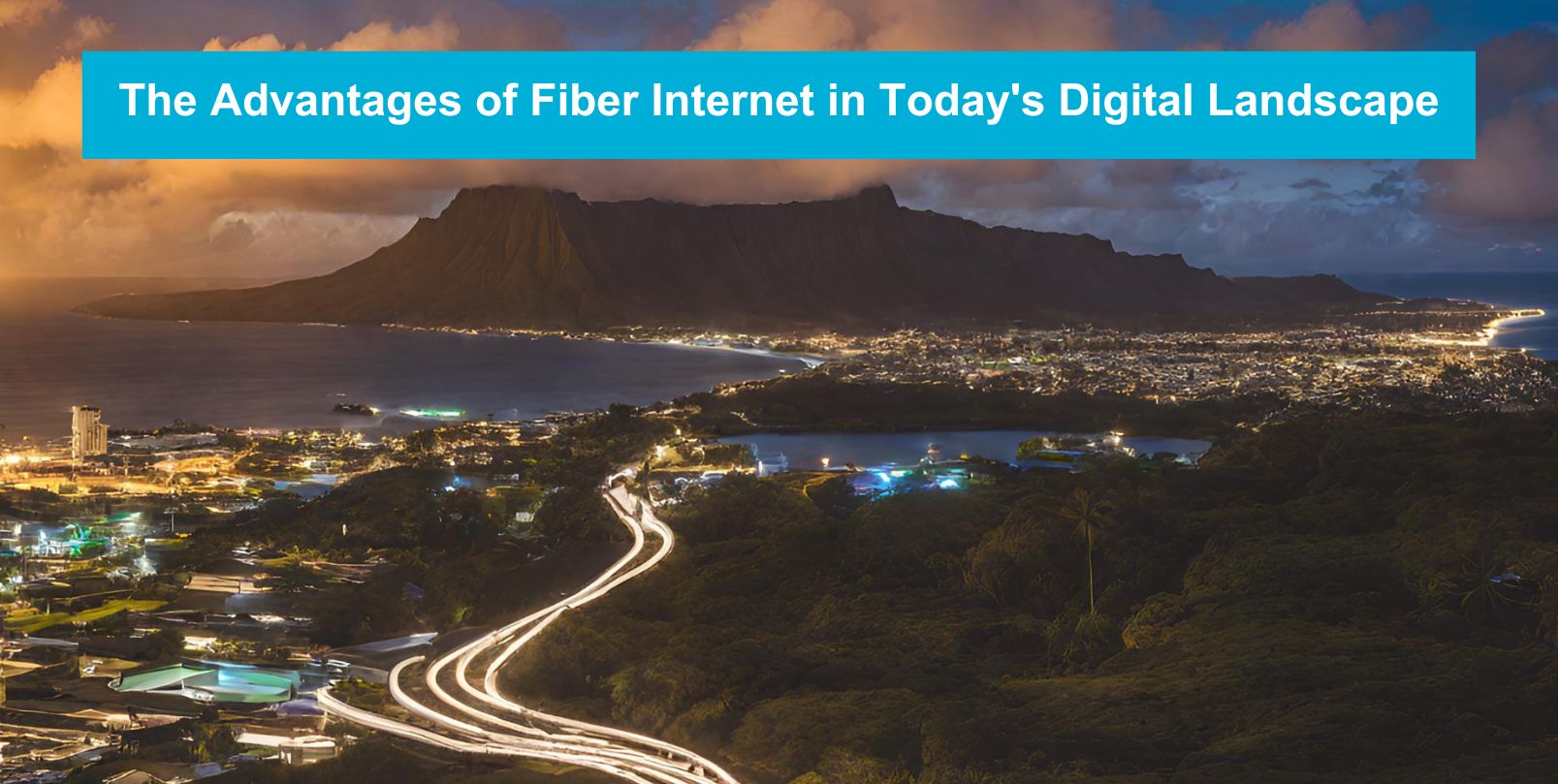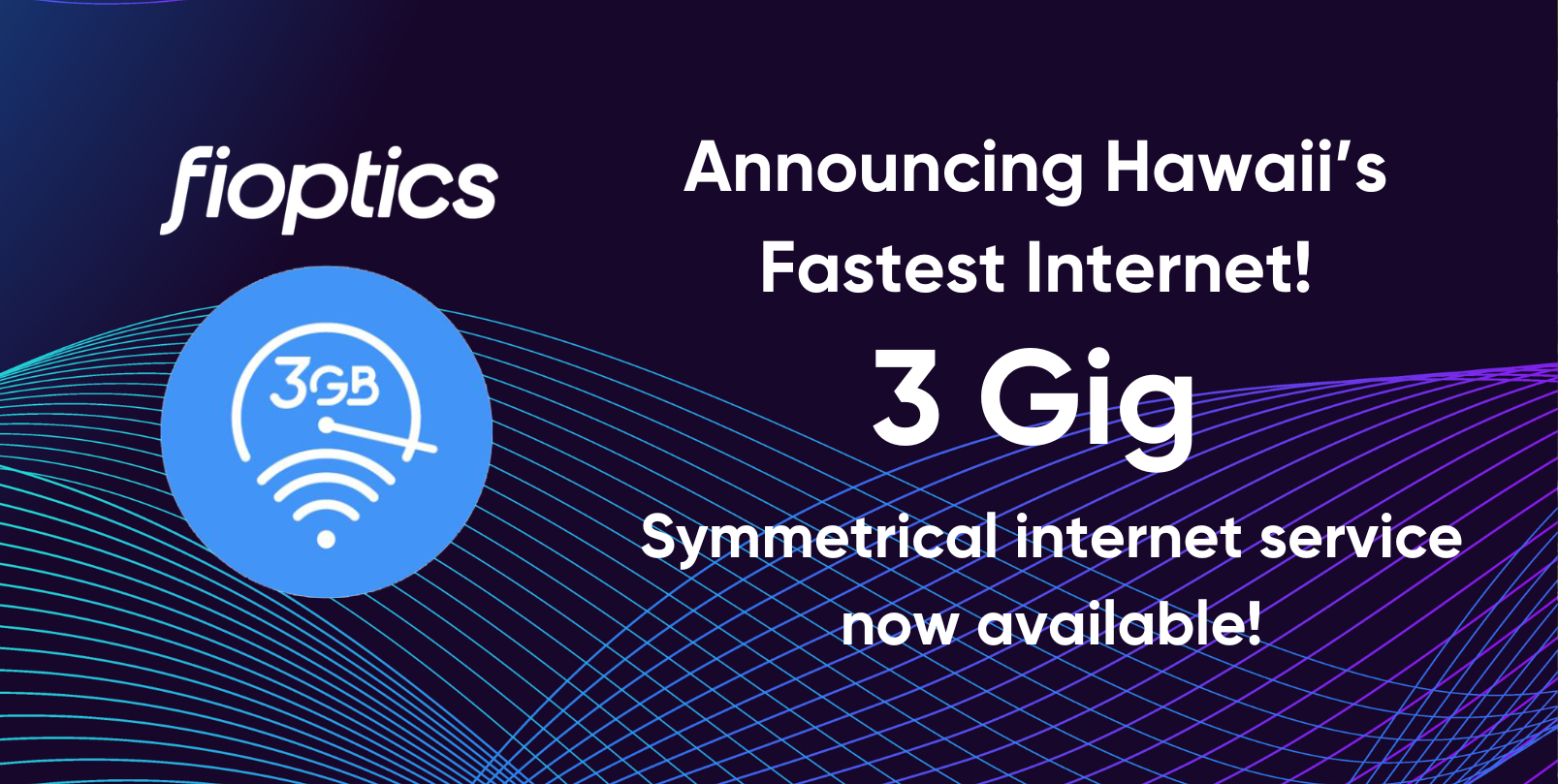The Advantages of Fiber Internet in Today's Digital Age
In today's digital age, having fast and reliable internet is more important than ever. Whether you're streaming your favorite shows, working or learning from home, or gaming with friends, a strong internet connection is key. This is where fiber internet comes into play, offering unparalleled speed and performance. When we look to the future of internet and harnessing the benefits of fiber optic technology, our fiber-optic networks are the first purpose-built to meet the demanding needs of today’s internet user and the only infrastructure with the capacity to grow with the internet into the future.
Fiber was made for the internet
When home internet was first introduced, it was carried over phone lines. Then, cable companies began piggybacking internet connections along the same copper cable lines they use to provide TV signals. As the internet has continued to evolve, consumer demand for more speed and bandwidth has rapidly increased.
The advantages of fiber are many.
- Exponentially more download bandwidth – Your internet speeds depend on how much data the infrastructure can handle. A fiber-optic cable has approximately 10,000 times more bandwidth than a traditional copper cable. This can be attributed to fiber’s method of transferring data via pulses of light along glass fibers, each smaller than the width of a human hair. Because light is faster than electrical pulses, fiber is capable of transmitting much more data per second.
- Faster upload speeds – Videoconferencing via applications like Zoom and WebEx, along with large file uploads, and online gaming, all rely on upstream bandwidth. Because copper lines are limited in the total amount of traffic they can carry, providers have been forced to allot the majority of available bandwidth to download streams at the expense of upload streams. As a result, many cable companies can offer high download speeds but fall behind when it comes to upload speeds. Hawaiian Telcom’s fiber network, on the other hand, can provide upload speeds up to seven times faster than those of its major competitor operating on a legacy network.
- Resistant to electromagnetic interference – Electrical currents carried along copper lines are susceptible to the constant electromagnetic interference in the air caused by radio signals, cell towers, power lines, lightning, and the sun, to name a few. This interference degrades the current signals, which reduces bandwidth. Since fiber-optic cables do not conduct electrical currents, their signals are not susceptible to this interference.
- Better at carrying information long distances – All data signals weaken the further they have to travel. Fiber only loses 3% of its signal over distances greater than 100 meters, compared to copper, which can lose up to 94% of its signal over the same distance.
What does the future look like with fiber?
Although the internet has been around for decades, it’s still just getting started and as recent history has shown, the ways people are using the internet are quickly evolving. One thing is for certain, our consumption of data is going to continue to grow and along with it will our need for higher bandwidth (both upload and download). Streaming is quickly becoming the preferred method to consume high-definition audio and video, the audience for online gaming is broadening, smart home and other internet-enabled devices are flying off shelves, and practical applications for virtual and augmented reality are being explored. Fiber is what will make all these – and whatever might follow – possible.
Rest assured in the knowledge that you've secured your spot in the future by choosing Hawaiian Telcom’s Fiber network.






.png)